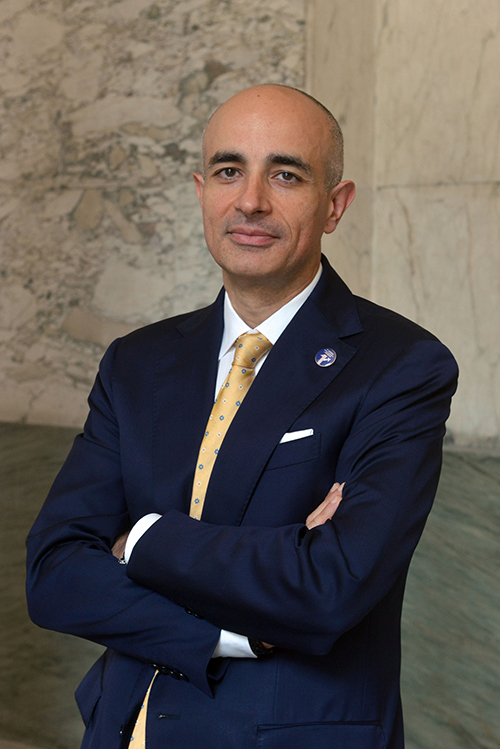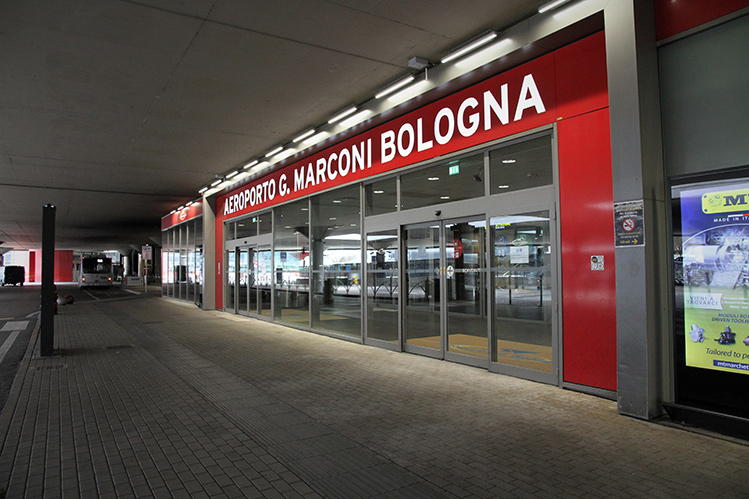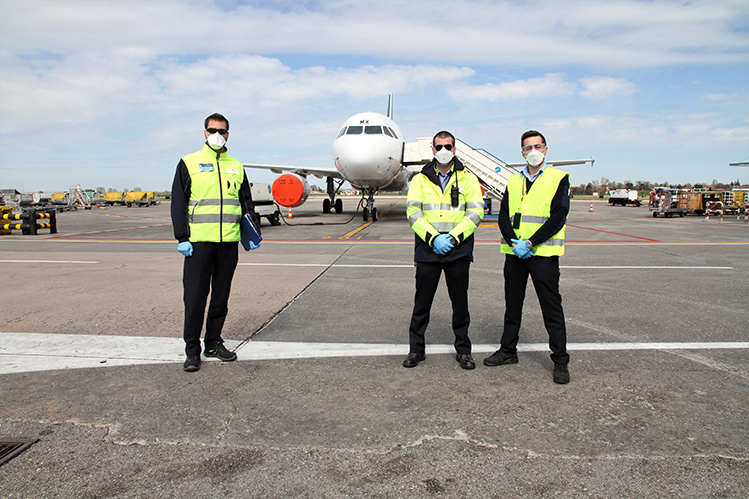The impact of COVID-19 on Bologna Airport has been as dramatic as for most Italian and European airports. Until 21 February, when the first case occurred in Italy, passenger traffic was showing healthy growth of 8.1%. After only 3-4 days, traffic started to show a progressive decline, until the first week of March with load factors decreasing and a few tactical cancellations.

Nazareno Ventola, CEO Bologna Airport: “We need, as an airport industry, to be even more proactive, engaging with our customers, our business partners and institutions, both at national and European level, to design together the recovery curve, protecting and preserving the very nature of airports that, I believe, are not just infrastructure providers for the airlines but businesses in their own right.”
“Right after the 9 March ‘#istayhome’ Governmental Decree, in very few days all airlines started to stop operations, bringing a passenger decrease of -86% in March,” explains Nazareno Ventola, CEO Bologna Airport. “To give you an idea, at the moment we just have a single daily flight to Rome by Alitalia and from a ‘normal’ average of 25,000 daily passengers we now have 60-70.”
Since the very beginning, Bologna Airport’s first priority has been the health and wellbeing of its people. “It’s because of them that we were able to achieve in 2019 the best-ever results for our company, both from a financial and from a traffic growth point of view,” says Ventola.
The airport quickly established a Crisis Committee made up of Senior Management, Communication Manager, and Health and Safety Managers.
“We updated and constantly review the HSE Risk Evaluation document and rules concerning workers’ health on duty,” says Ventola. “On managing the crisis, we aggressively addressed the OPEX baseline in order to reduce the costs of the ‘airport machine’ as much as possible. We also applied for the National Redundancy Fund for all our people, in order to reduce labour cost and mitigate the impact of traffic drop on revenues and margins. We also reviewed our CAPEX plan for 2020 in order to protect cash flow, which is vital in this peculiar and unprecedented situation.”
Proactively “protecting and preserving the very nature of airports”
Ventola emphasises the importance of communication. “Like Shakespeare wrote in Hamlet, ‘The Readiness is all’. The problem is that you are never ready enough for a disruption like this! It is, therefore, very important to communicate internally, to all your people, and beyond the ‘official’ HR channels, using company social media, direct email and virtual meetings, which we are doing as a company to tackle the situation.
“In my position I need to be direct, not hiding things and being clear about the fact that we’re going through tough times, and as Winston Churchill said ‘If you are going through hell, keep going’. But I also need to communicate that we’ll come out of this together as a team and we don’t want to leave anyone behind. It will take time, but this crisis will pass, although we can’t tell exactly when. People feel somehow ‘lost’ in such a situation and Managers and CEOs carry a responsibility to show a direction and at the same time not hide that we are also ‘humans’ with our worries and not all the answers.”

Right after the 9 March ‘#istayhome’ Governmental Decree, in very few days all airlines started to stop operations at Bologna Airport, bringing a passenger decrease of -86% in March.
While many experts are foreseeing the aviation world of tomorrow, Ventola comments that scenario planning could be a “safer” approach in order to explore and assess “alternative futures” and future-proof airports’ resilience and opportunities under, even radically, different “new aviation worlds”.
“Only time will tell what will happen, but we need to be ready, flexible and adaptable,” he says. “I do not have a crystal ball, unfortunately, and I think that forecasting traffic recovery is almost impossible at the moment.”
Ventola believes that this crisis is very different from others in the past, such as 9/11 or SARS, and that recovery may be slower. “Because of that, we need, as an airport industry, to be even more proactive, engaging with our customers, our business partners and institutions, both at national and European level, to design together the recovery curve, protecting and preserving the very nature of airports that, I believe, are not just infrastructure providers for the airlines but businesses in their own right.”

Since the very beginning, Bologna Airport’s first priority has been the health and wellbeing of its people. “It’s because of them that we were able to achieve in 2019 the best-ever results for our company, both from a financial and from a traffic growth point of view,” says Nazareno Ventola, CEO Bologna Airport.







